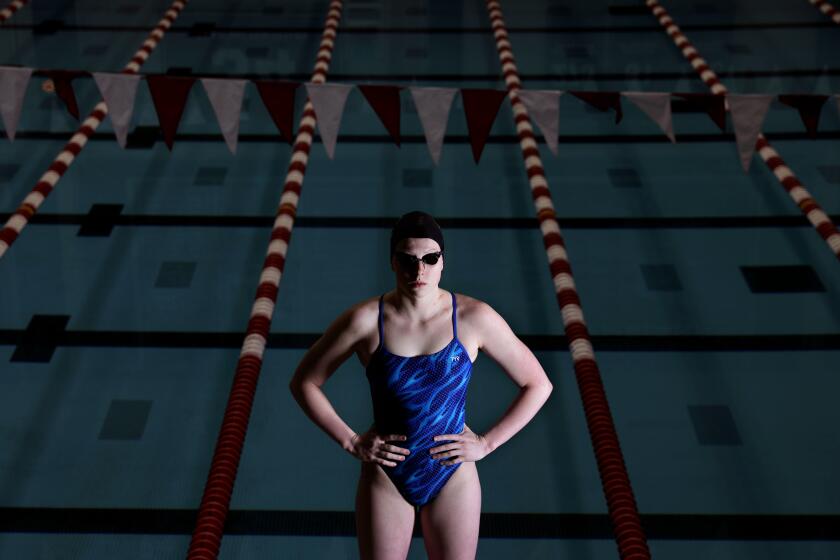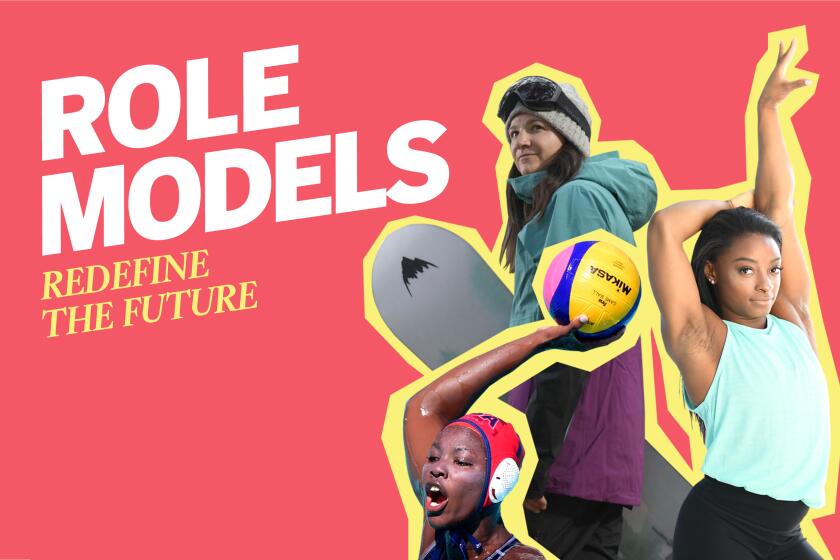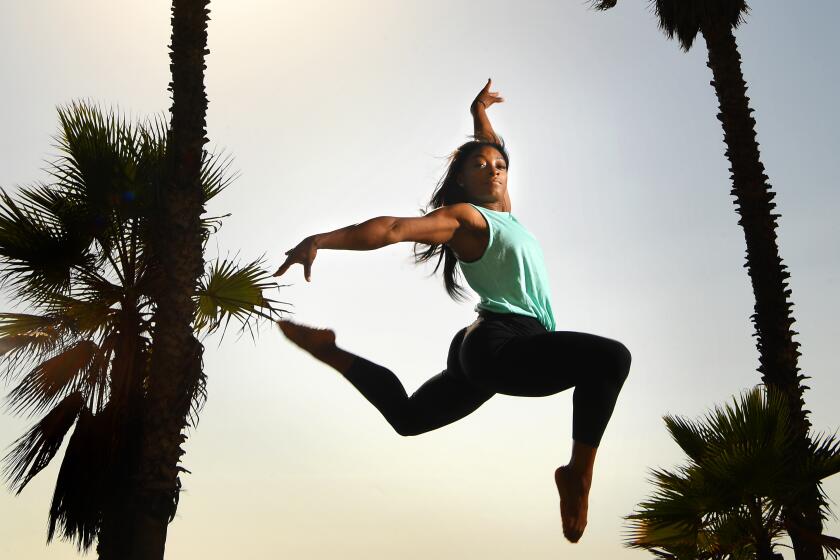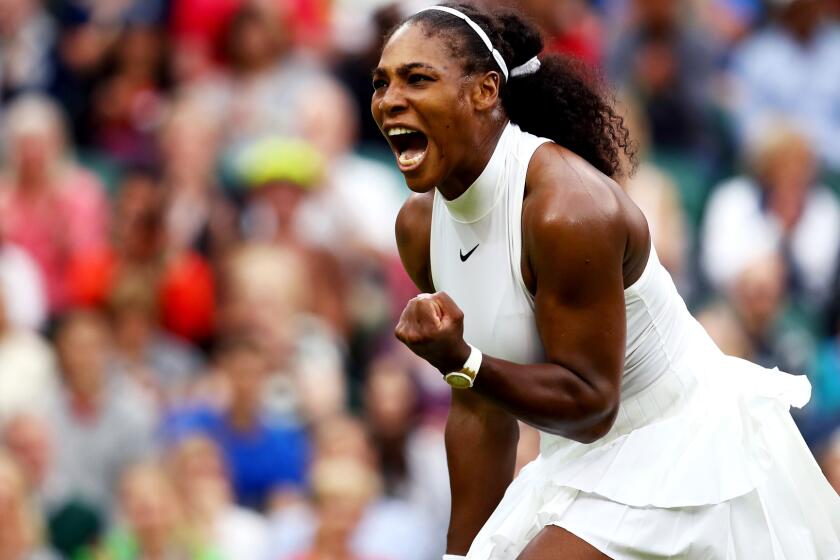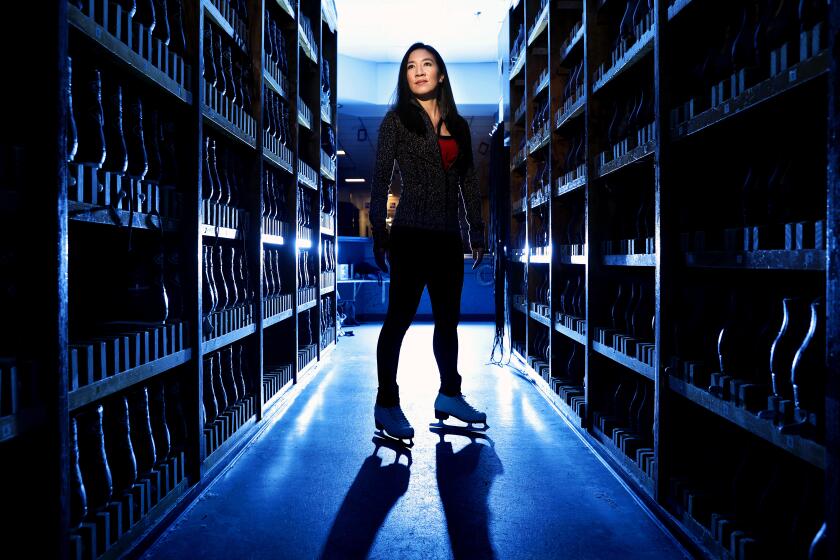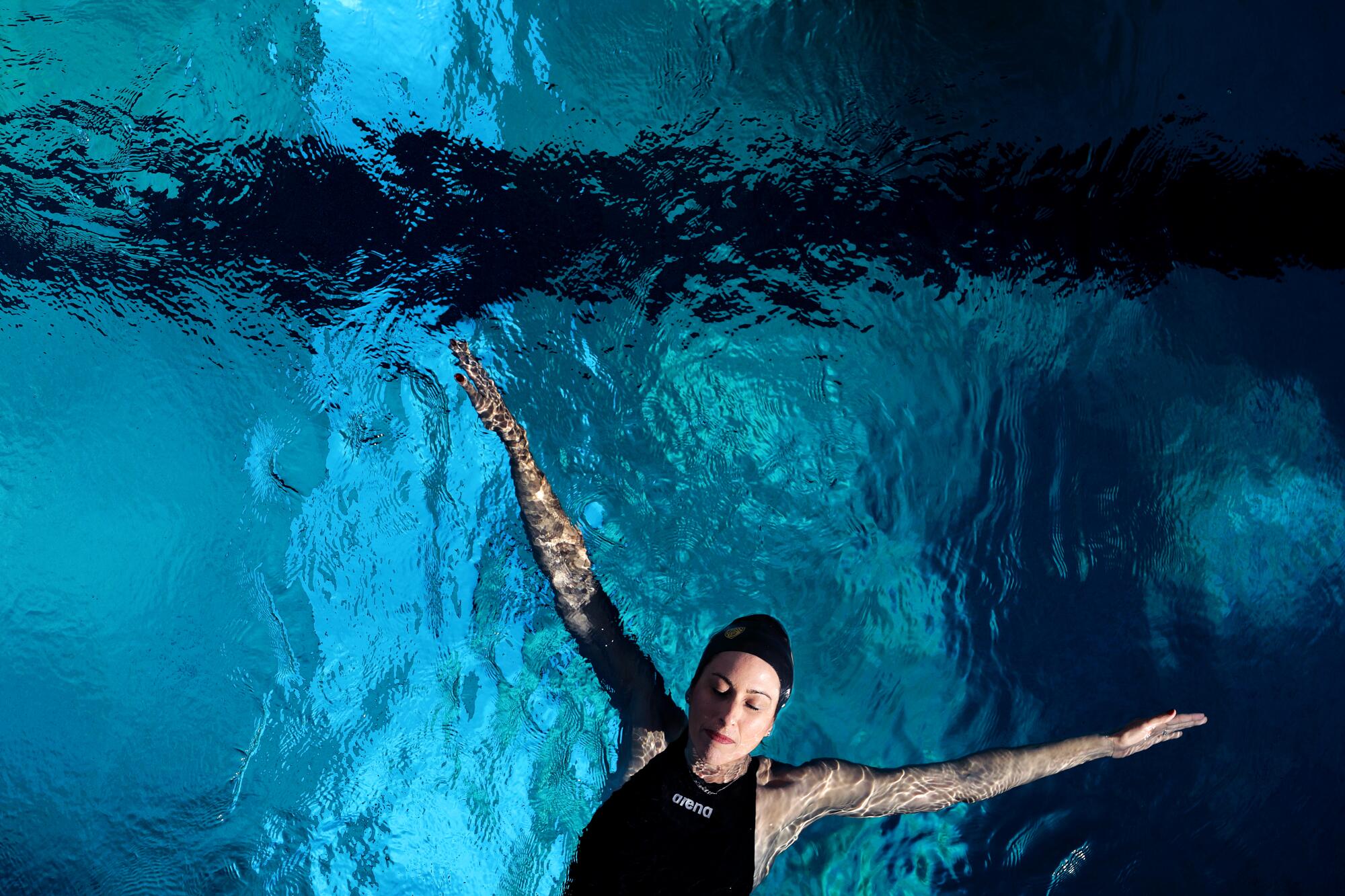
Janet Evans was less than a year old when Title IX became law.
Long before the Olympic gold medals and world records made her a household name as one of the most dominating swimmers of all time, the Fullerton native never doubted she would have the same opportunities in the sport as a man.
She credits the landmark legislation signed into law in 1972 that mandates equal opportunities for men and women at schools that receive federal funding.
“I was a baby of Title IX,” says Evans, 48. “I never felt like I missed any kind of opportunity because of my gender and I’ve thought about it a lot.”
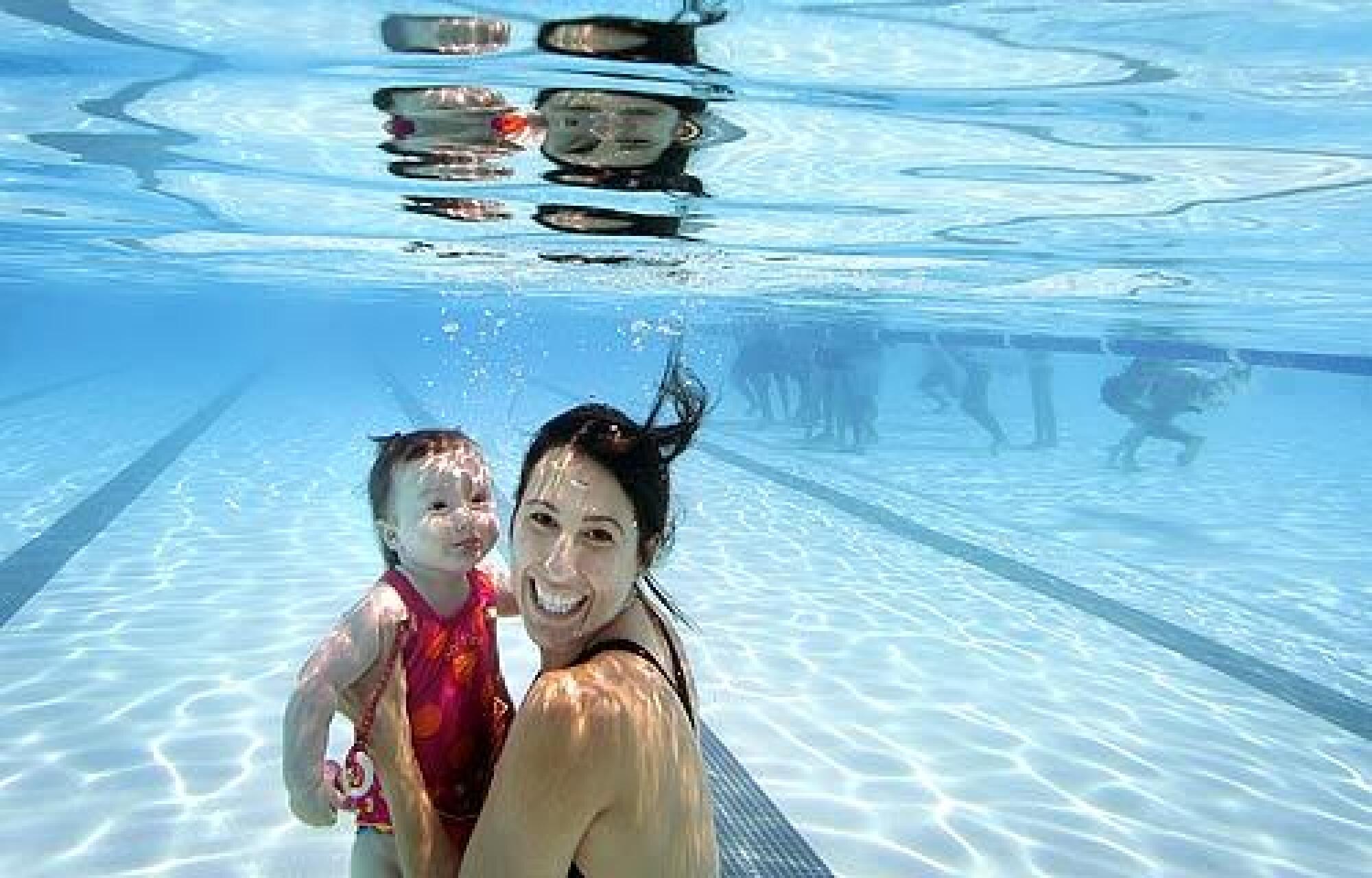
By the time she spurned a host of endorsement offers to sign a scholarship to swim for Stanford in 1989, she owned three individual gold medals from the Seoul Olympics and three world records.
As a freshman — nicknamed Miss Perpetual Motion because of her unusual stroke and relentless approach in the pool — she met Donna de Varona, a trailblazer in women’s swimming who decided to go to UCLA at age 17 after winning two gold medals at the 1964 Olympics in Tokyo. Since scholarships weren’t available for female athletes, De Varona quit competitive swimming, attended school and pursued a career as a sports commentator.
“I remember thinking that’s amazing because never once in my career did I ever feel I’d never had the same opportunities as men,” Evans says. “I never once didn’t think I couldn’t reach my dreams because I was a woman.”
She took advantage of the opportunity, adding another gold medal at the 1992 Olympics in Barcelona. She didn’t just set records, she obliterated them. Her record in the 400-meter freestyle stood for almost 20 years along with her top marks in the 800 freestyle (1989-2008) and 1,500 freestyle (1988-2007).
Lilly King has been called brash, feisty and outspoken. But the reigning Olympic gold medalist in the 100-meter breaststroke sees it differently.
She endorsed a slew of companies and products, was a motivational speaker and even competed at the U.S. Olympic trials in 2012 — 15 years after retiring.
These days, Evans is the chief athlete officer for the L.A. 2028 Olympic Committee to help give athletes a voice in how the games are planned. The position opened her eyes to the difficult reality faced by female athletes from other countries.
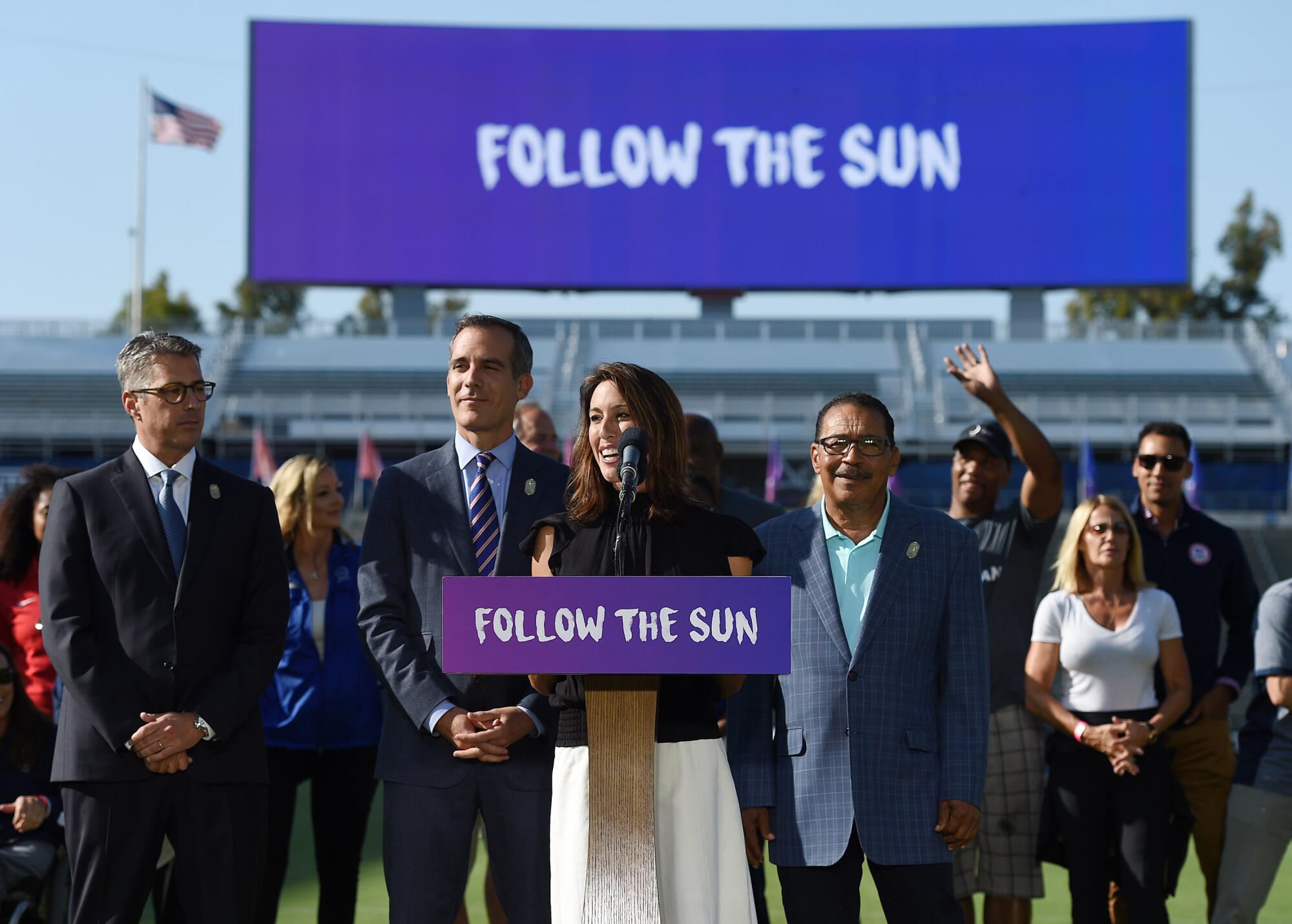
“I started working with athletes from all over the world and met many of them I felt had been discriminated against in the Olympic space because their gender, kind of a byproduct of their national Olympic committees,” she says.
But Evans’ experience — and view of the opportunities for female swimmers in the U.S. — remains positive.
“I really think the opportunities for women have only gotten better,” she says, “and not with the obstacles from other sports.”

After weeks of negotiations with the International Olympic Committee Los Angeles officials have reached a deal to host the 2028 Summer Games. (Video by Allen J. Schaben / Los Angeles Times)
More to Read
Go beyond the scoreboard
Get the latest on L.A.'s teams in the daily Sports Report newsletter.
You may occasionally receive promotional content from the Los Angeles Times.

